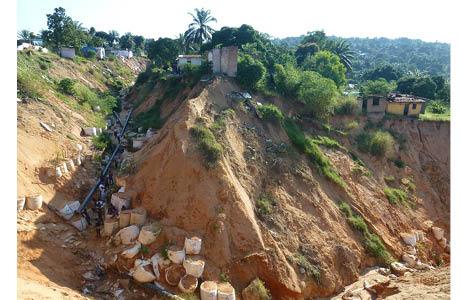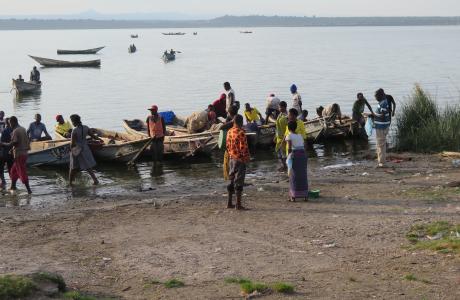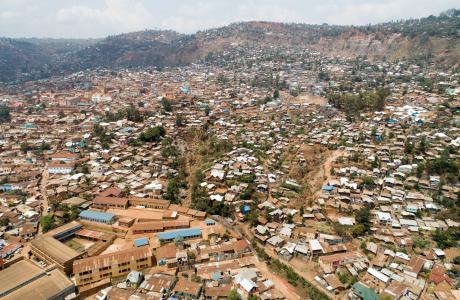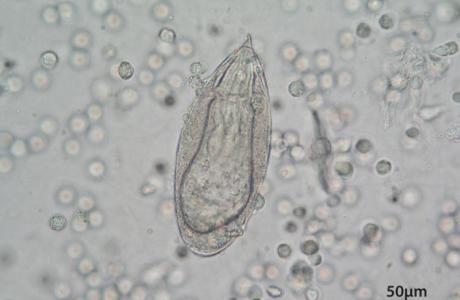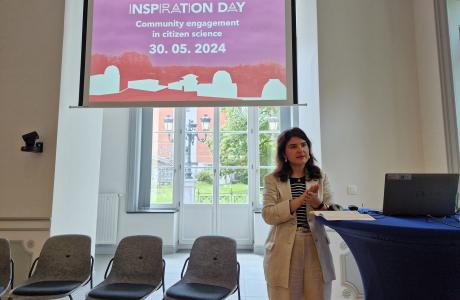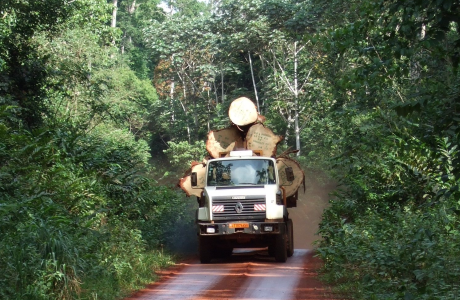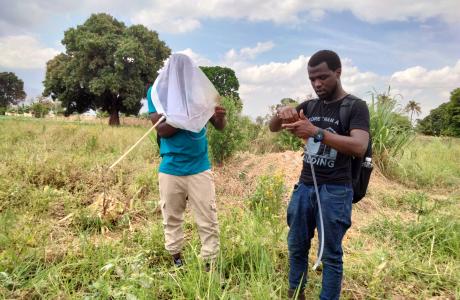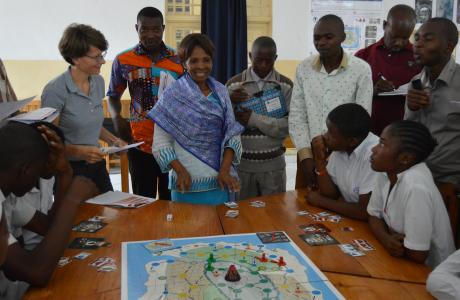Science news
- August 2025
In the fast-growing cities of the Democratic Republic of the Congo, heavy rainfall creates thousands of large gullies. Houses are swallowed by these deep erosion channels, causing an estimated 12,000 Congolese to lose their homes each year.
- January 2025
The strong decline of biodiversity in freshwater systems worldwide is a quiet crisis - one that few people are aware of. What happens underwater is a case of ‘out of sight, out of mind’. Now, in a new Nature article, some 88 scientists and IUCN collaborators from all over the world who are involved in a twenty-year IUCN effort to assess various groups of freshwater animals have reported that a quarter of the planet's freshwater fauna is threatened with extinction.
- September 2024
When people hear the word ‘landslide’, they often think of the sudden collapse of earth or rock from a mountain. But slow-moving landslides – which can move as little as one millimeter per year and up to a few meters per year – are also a growing threat to people who are pushed to live on steeper slopes because of urban growth and flood risk.
- August 2024
New research from KU Leuven and AfricaMuseum shows that climate change allows disease-carrying freshwater snails to survive in several southern European countries, driving up the risk of catching schistosomiasis, an infectious disease caused by a parasitic flatworm. Scientists want holidaymakers to be aware of the risk before taking a refreshing dip in the river or lake.
- June 2024
On 30 May, the federal citizen science community met at the Royal Meteorological Institute to discuss the role of local communities in scientific research. To engage these communities, scientists need to figure out smart and empathetic approaches – a task that forces researchers to rethink their methods all the time. Six concrete projects showed us different ways that research teams rose to the challenge.
- May 2024
Today we celebrate the International Day for Biodiversity! Africa is home to an enormous variety of species and ecosystems of global importance. To further knowledge of African biodiversity, we study the structure and function of wood, as well as the role of trees and fauna in various African ecosystems.
- May 2024
The Royal Museum for Central Africa has been organizing true fly (Diptera) training courses for more than 15 years. Initially, these trainings took place in Tervuren, Belgium with a focus on pest fruit fly species (Tephritidae). In the last decade the trainings took place in Africa and also covered trainings on fly families with an important role in pollination, such as hoverflies (Syrphidae), nose flies (Rhiniidae), and tangle-veined flies (Nemestrinidae).
- April 2024
The Colonial Sources (CoSo) project aims to develop a digital platform as a gateway to archives and knowledge about the shared Belgian, Burundian, Congolese and Rwandan colonial past. The CoSo portal will, for the first time, bring together existing but still fragmented collections and information on the Belgian colonial period. It will also offer educational tools based on often asked questions about Belgian colonialism. The platform targets both researchers and a broad public.
- April 2024
Maarten Couttenier’s latest book, Anthropology and Race in Belgium and Congo (1839-1922), was published by Routledge earlier this year. It examines the history of physical anthropology in Belgium throughout the 19th century and shows how the notion of ‘race’ shaped various forms of European nationalism as well as imperialism in earlier and later Belgian (attempts at) colonization.
- March 2024
On this special day, we are highlighting our dear colleague and researcher Caroline Michellier, from the Earth Sciences Department.
